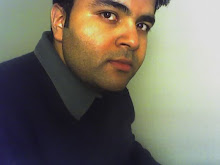My friend Najaf used to joke about love. He used to say, if you don't understand something, call it love.
We all know what love is, but at the same time, we all don't know how to define it. We have only seen it in action. What is it, really?
Emotions are what clearly differentiate human beings from other animals. We often tend to put emotions down because of their blinding power over us. Uncontrolled emotions outweigh intellect at times leading to foolish decisions. At the same time, emotions can be used as a positive force. Emotions are crazy things. They make us do what we cannot and wouldn't do otherwise. Its all a matter of tapping the energy the right way. Emotions are energy and energy can be used both positively and negatively.
What I wanted to lay forth was a semi-biological definition of love. Love is a formation of neural pathways or circuits in our brain. It all starts with an object and a stimulus, or stimulii. Lets take the common example of a man falling in love with a woman (I know, thats just way too common. Sorry ;) ) Man is the lover, woman is the object of love, and the stimulus could be a number of things--her physical attraction, her kindness, her style, her mannerisms, her emails, her voice mails--anything! After the first attraction, neural circuits begin to form in the lover's brain. With every continuing stimulus, these circuits get stronger, and within a matter of some time (which varies from person to person) these circuits get ultra strong. Not only that, anything pertaining to the object of love is also linked to the main circuit. The object of love's surroundings, their belongings, their city, their choices, gets connected to the main circuit. At the height of it all, we have a super strong main circuit with half the brain serving as its adjutant.
After we have a strong circuit, it becomes a stabilizing force for us. It actually gives us joy and pleasure to use it. We experience a heightened sense of being and a feeling of pseudo-intoxication.
And here is the most critical part: These circuits are self-protective.
What I mean by self-protective is that once a circuit is formed, the lover is forced to think in a certain pattern. Any memory, no matter how remotely attached to the main circuit, brings us back to thinking about the object of love. Now, if your relationship is going fine, it gives you joy. On the flip side, if the relationship is not going fine, it would turn into something not so joyful.
This is what happens at break-ups. These self-protective circuits don't want you to destroy them. So they fool you. Lovers often think that thinking bad things about the object of love would cure them. Wrong! Even when you are cursing your object of love, it is acting as a positive stimulus for the main circuit. The safest thing to do is to unplug all stimulii.
And here is the second critical part: These circuits are reversible.
There is one more thing. The object of love dictates the strength of the main circuit. In case of an object that ages with time, the stimulii weaken with it. On the other hand, if the object is divine, the biology of such love is very different altogether.

